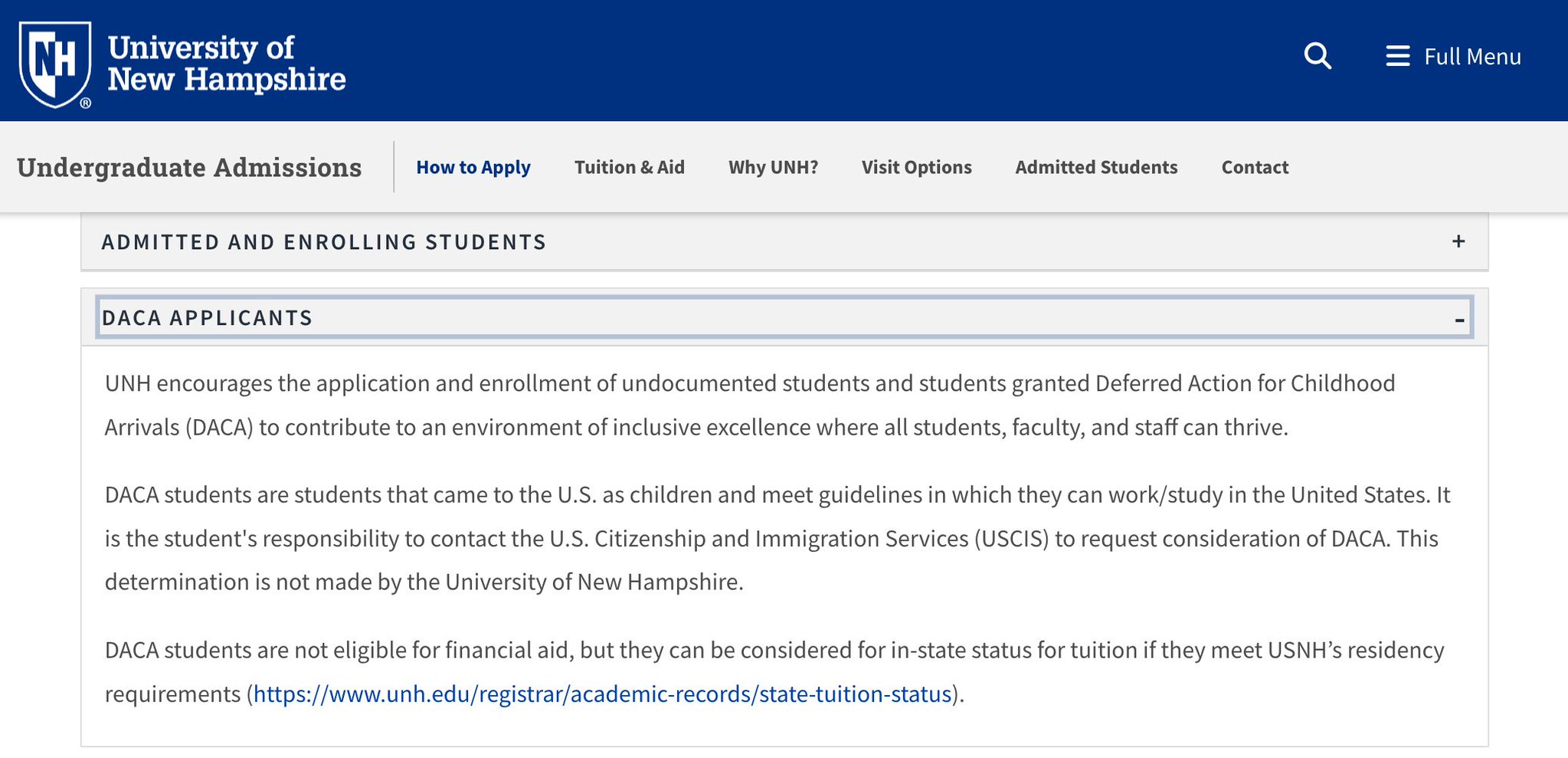The University of New Hampshire isn’t saying how many of its enrolled students are in the country illegally, and the university appears to be hiding the fact that some of those students are getting subsidized tuition rates.
Illegal immigrants attending U.S. colleges is nothing new. The Higher Ed Immigration Portal estimates that more than 407,000 undocumented students, including DACA recipients, are enrolled in higher education.
But with the state’s budget tight and the University System of New Hampshire (USNH) complaining about modest cuts proposed by House Republicans, Rep. Joe Sweeney (R-Salem) wants to know what impact illegal immigration is having on the system. He’s also expressed concern that the system’s willingness to take undocumented migrants might mean legal Granite State residents are losing slots.
When he asked UNH for the data on the number of students who are “undocumented, or in the country illegally,” he didn’t get the answer, he told NHJournal.
“They told me they don’t keep those numbers,” Sweeney said.
Sweeney wants to know exactly how many UNH students are illegal immigrants, and how many of those undocumented students are getting in-state tuition rates, or any other form of financial aid.
“You can be in this country illegally and you can get a subsidized education at UNH,” Sweeney said.
When NHJournal reached out to UNH to follow up on Sweeney’s request, it declined to respond. Sweeney provided NHJournal with a screenshot recently taken from UNH’s admissions page that states DACA students can, in fact, get in-state tuition.
“DACA students are not eligible for financial aid, but they can be considered for in-state status for tuition if they meet USH’s residency requirements,” the website states in the screenshot.

But when NHJournal checked Tuesday afternoon, the information about in-state tuition for DACA applicants was missing.
“DACA students are students that came to the U.S. as children and meet guidelines in which they can work/study in the United States. It is the student’s responsibility to contact the U.S. Citizenship and Immigration Services (USCIS) to request consideration of DACA. This determination is not made by the University of New Hampshire. DACA students are not eligible for financial aid,” the page stated on Tuesday afternoon.
For Sweeney, the concern is that undocumented students, or students who are in the country illegally, are taking spots at the state university that should be going to New Hampshire natives and getting the in-state rate. Tuition for 2024-2025 was $15,520 for New Hampshire residents and $36,170 for non-residents.
Sweeney is concerned that UNH may have turned away a total of 2,400 New Hampshire applicants in the last four years, at the same time it was seeking DACA students to apply. Sweeney’s critics point out that the USNH system already accepts more than 85 percent of all New Hampshire residents who applied to UNH. The rates at Keene State and Plymouth State are even higher.
Eva Castillo, director of the New Hampshire Alliance for Immigrants and Refugees, points to another math problem in Sweeney’s argument: There simply aren’t enough undocumented people in New Hampshire to ruin any Granite Stater’s college dreams.
“There are 88,000 foreign-born people in New Hampshire, and less than one percent are undocumented,” Castillo said. “I don’t know where this idea has come from that we’re being flooded by undocumented people.”
Castillo says undocumented students at UNH do not qualify for traditional forms of student aid, and they have to pay out of pocket for their education. Rather than promoting attendance, they face a barrier to seeking college degrees or specialized job training. In many cases, these students have been in the country since they were children.
“These kids are kids who have been raised pledging allegiance to our flag,” Castillo said. “I don’t understand what is the purpose of (Sweeney’s) attitude … These are not the principles of the America I have known.”
Perhaps, but UNH’s unwillingness to share its data and its decision to delete DACA information from its website raises questions about the real numbers on campus.
Sweeney told NHJournal he isn’t against illegal immigrants attending universities, he just doesn’t want them to go to UNH or any New Hampshire college.
“They can pursue education in their own countries when we send them back,” Sweeney said.




